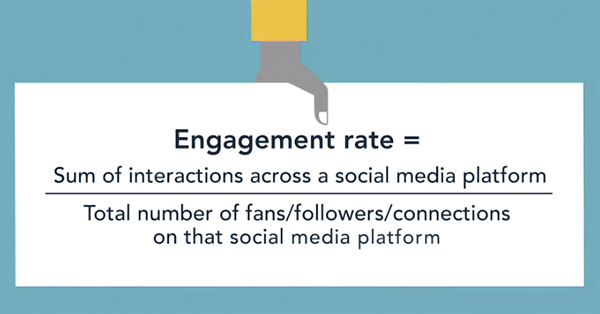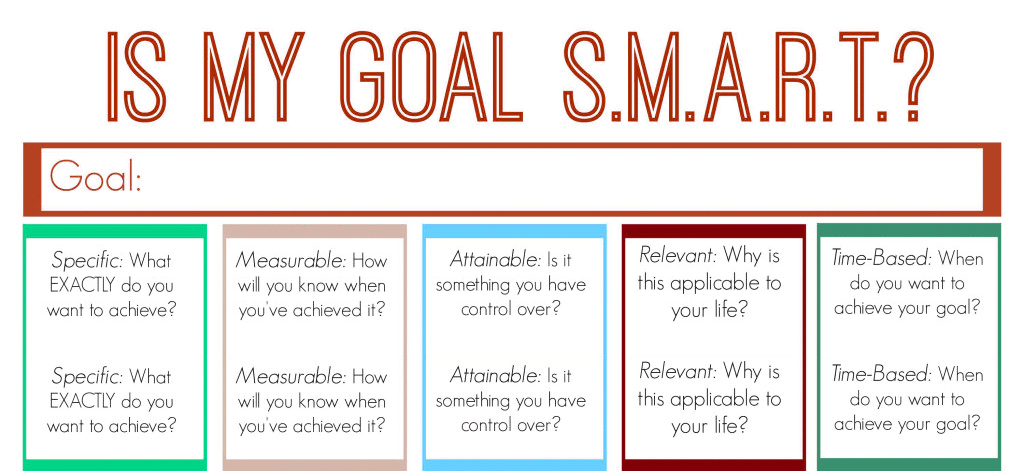This article uses social media as an example, but these tactics for establishing SMART goals can be applied to any marketing plan.
When a social media marketer begins to design a strategic social marketing plan, there is often no clear direction on where to begin. A lot of time is lost in brainstorming and asking questions about the client’s business goals in order to determine where in the marketing funnel the social efforts should be focused on. For most new businesses, there are few to no existing efforts. In this case, this means the client’s social efforts are in the awareness phase (learn more about the marketing funnel), and this means goals haven’t been clearly established or defined.
Where to start?
The first step to begin your marketing plan is by laying out very clear goals. Now, as easy as this may sound, to many clients this step does not come that easily for them, so you have to step in and provide your client with a roadmap to come up with SMART Goals.
Important: Check your social media platform or your Google Analytics to gather data from your pre-existing users to make SMART goals even more effective.
Tip: Twitter Analytics is ree with your account.
SMART is an acronym that represents a framework for creating effective goals. It stands for five qualities your goals should have: They should be specific, measurable, achievable, relevant, and time-bound
Whether it’s your first time managing social media for an organization or you’re simply hoping to enhance your online profile, here is a list of examples of social media goals. Remember that each goal can include one or more of the SMART elements, but it doesn’t mean that each goal must contain all of them.
Examples of Social Media SMART Goals
Here are some other examples of SMART GOALS for an environmental non-profit organization:
(download Social Media Goals Template.doc) Example 1
Example 1
SPECIFIC GOAL
Exactly what is it that you want to achieve in your business, and to what extent? A good objective or goal should answer the questions: ‘which, what, who, where, when, and why
“In the case of social media, you want to improve awareness; however, ‘awareness’ is not a goal. Try to narrow it down and think about how you can create brand awareness. For example, if you want more followers, consider creating a contest and giveaways for every new follower who participated.
Not Specific: “I will use social media to increase brand awareness.”
Specific: “I will create a campaign of hashtag contests on Twitter to increase brand awareness.” -—for every follow, we will donate a T-shirt.”
Example 2
MEASURABLE GOAL
You need to be able to track the process and measure the outcome. A good objective statement should answer the question: “How much or how many.”
When it comes to goals, another approach is to measure success through EVT Metrics: Engagement, Value, and Traffic, especially in relation to sales or customer service. Having a general idea of the increase or decrease rates in these metrics can tell you if you are heading in the right direction toward your goal. Without a metric tool, how would you know if you achieved that goal?
Vanity metrics vs. real metrics: Metrics that matter on social media are Volume, Engagement, and Traffic. “Likes” on Facebook, and “Follows”on Twitter are considered vanity metrics because they dont offer valuable insights
What are the most important metrics by social media platforms?
What is engagement?

Your interest should be to aim at increasing engagement rate over time. You can also take a look at your competitors and calculate their engagement rate, and see how you can do better.
An example of a measured goal:
Not measurable: “Increase my engagement on social media.”
Measurable: “ increase engagement by 200% a month and answer all queries over Twitter within 24 hours.”
NOTE: Your twitter account (and so facebook and instragram, etc) provides a handy overview of your Twitter statistics, with monthly averages for engagement rates, replies and more. So the next time your boss is asking for a wrap-up, you’re just a click away.
1.. Login into your twitter account
2. Go to: https://analytics.twitter.com

Or you can use tools like buffer.com, hootsite.com, sproutsocial.com, or SEMrusch.com. Just figure out, in terms of metrics, what is important to your organization and make that a measurable goal.
Example 3:
ATTAINABLE GOALS (that are realistic and action-oriented).
Say what you are going to do. A good objective statement should describe a result.
For example: If your twitter account has just a few hundred followers, you don’t want to aim for a goal that is unrealistic in terms relating to the scope of your account.
Not Attainable: Goal: “Triple the number of my followers every day on every social network [forever]. ”
Attainable Goal: “Grow my Facebook audience by 20 followers a week, and my Twitter followers by 30 a week for the next quarter.”
Example 4:
RELEVANT TO YOUR BUSINESS GOALS
The objective should be challenging but realistic and also relevant to your business. Objectives may appear optimistic initially, but as you develop strategies to achieve them, they become realistic.
For example: Some organizations use social media to bring more traffic to their sites, create conversion –whatever that is– subscriptions, downloads, views, purchases. In the case of social media having a goal just to stay on top of twitter mentions is not a clear goal. Make your goal stays relevant to achieve business success.
Not relevant: “Use Instagram posts to increase web inquiries for my business.”
Relevant: “I will use Instagram as a way for me to present my X brand in a fun, visual way and increase engagement and brand awareness with my community.”
Example 5:
TIME-BOUND To Reach Benchmarks
Here objectives should include a time limit. A good objective statement should include “by when” do you want to achieve your result?
You have all your goals ready to go, now you need to set up a time frame to achieve them. By committing to a time frame not only can you measure ROI, but also provide an incentive for your Social Media team to finish a spring (SCRUM Project); therefore, the opportunity to celebrate an achieved milestone buying pizza for everyone or other types of Gamification incentives or rewards.
Not timely: “I will increase my Facebook followers by 5,000.”
Timely: “I will increase my Facebook followers by 5,000 by Q4.”
Your end results should look something like this:
Startup with 1 to 5 goals maximum, for each channel. Good Luck! 🙂
—————–
BONUS: Get free Social Media tools:
Download free Social Media Calendar Sample
Also, Download a free sample of a Twitter Hashtag Analysis

Tool used: https://www.hashtracking.com/
Other resources that can aid you on how to go about writing your Smart Goals is a great article by marketing professor on Smart Object, such as market share objectives, promotional objectives or growth objectives.
Don’t forget, that the most important thing to have is a clear business strategy, a set of clear goals, and from there develop the tactics that you will utilize to achieve those goals that will benefit the overall strategy of the organization.




